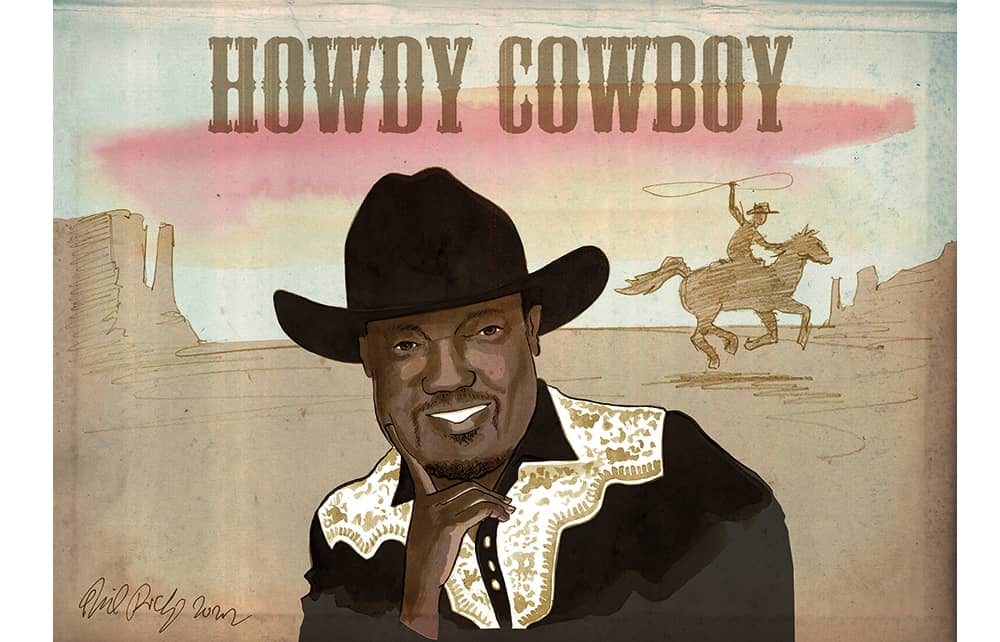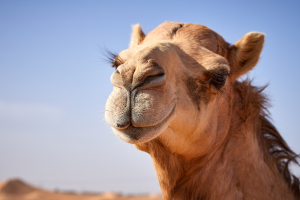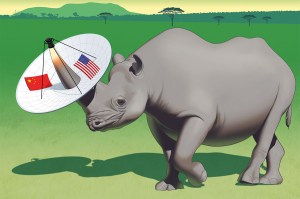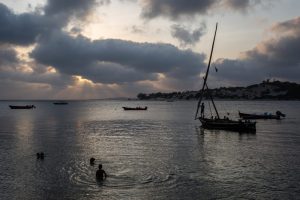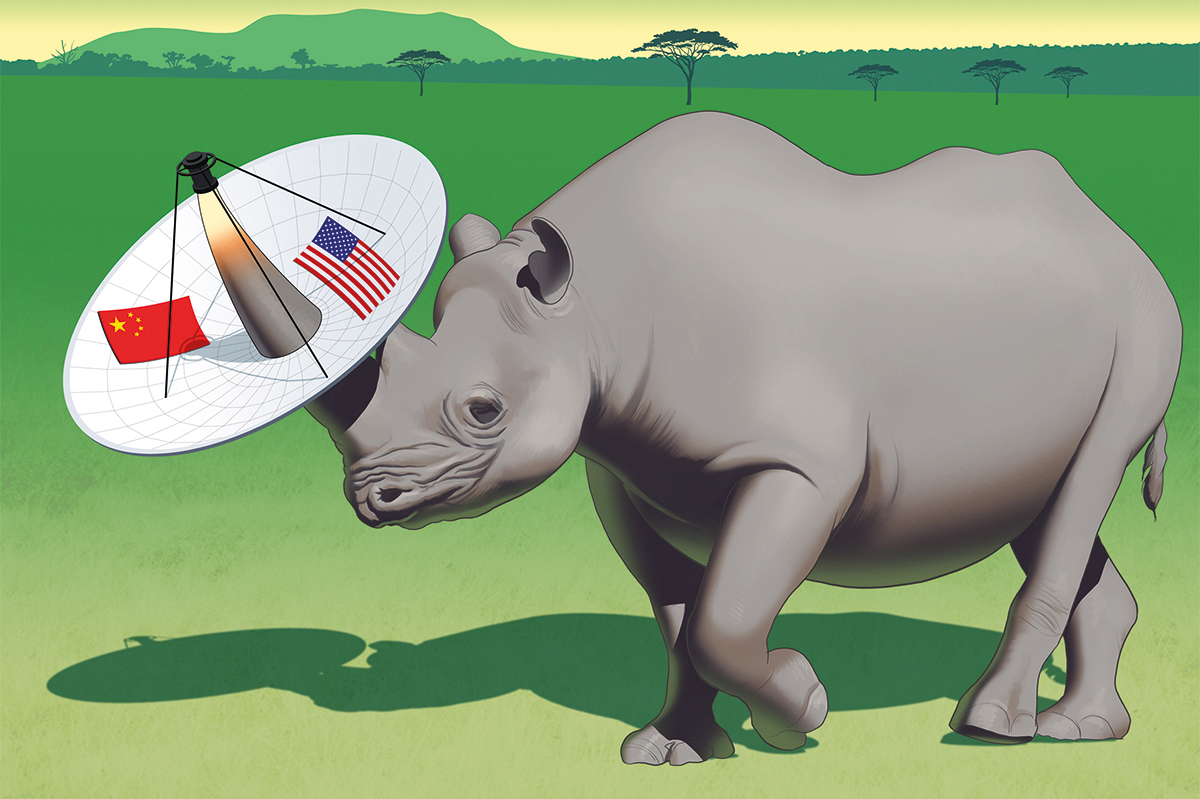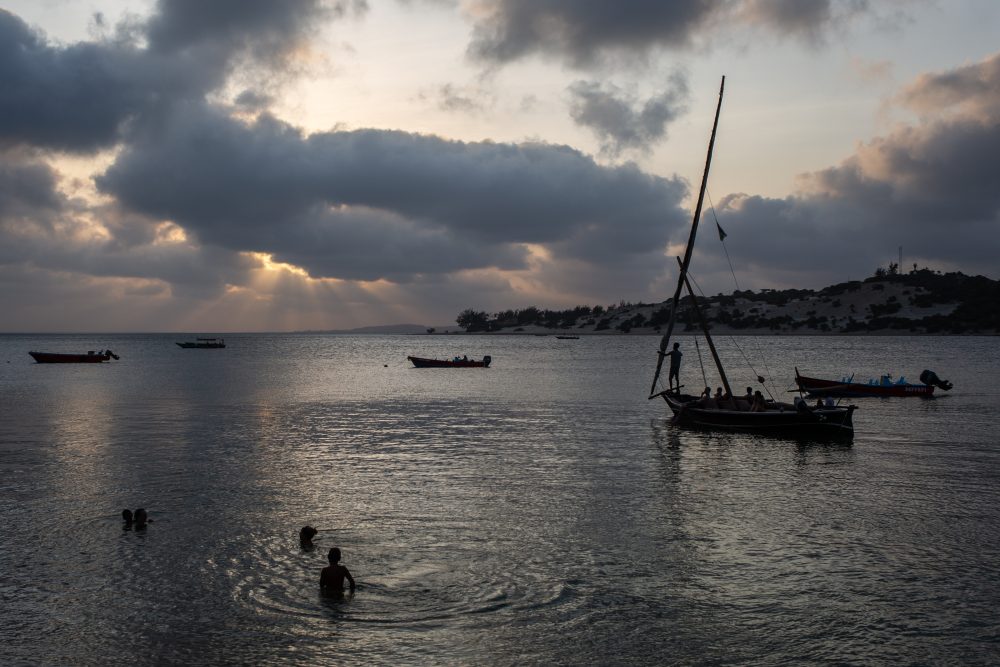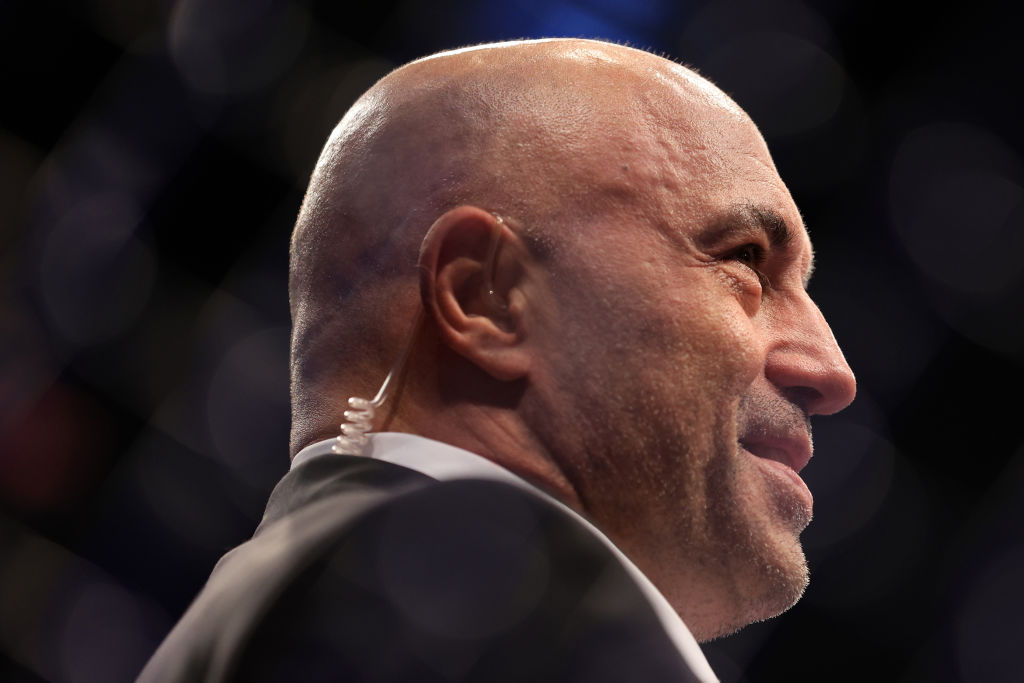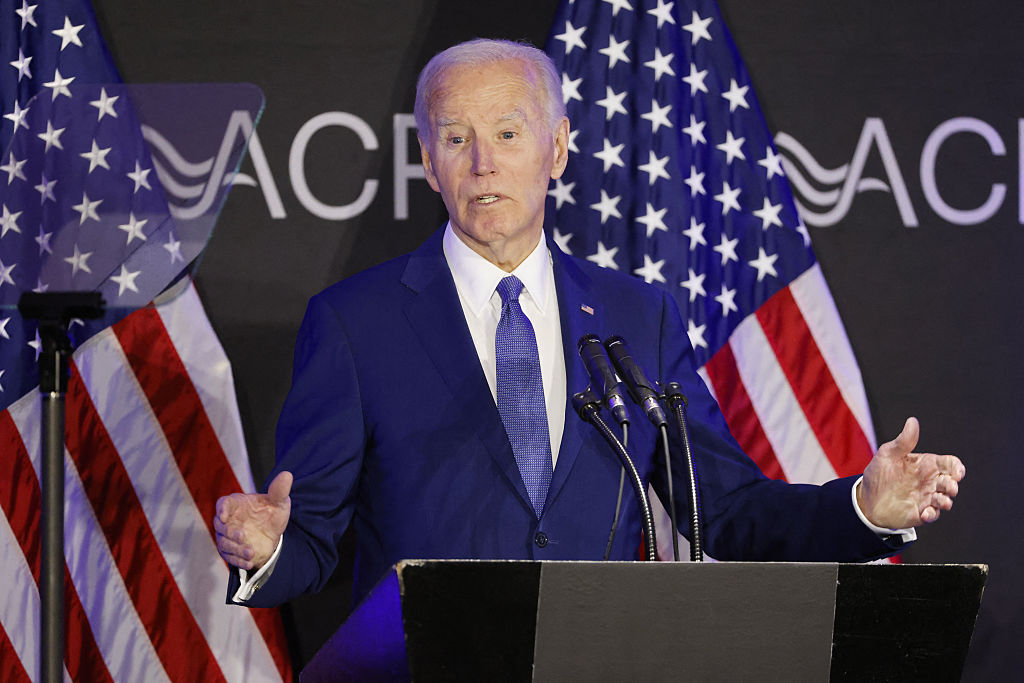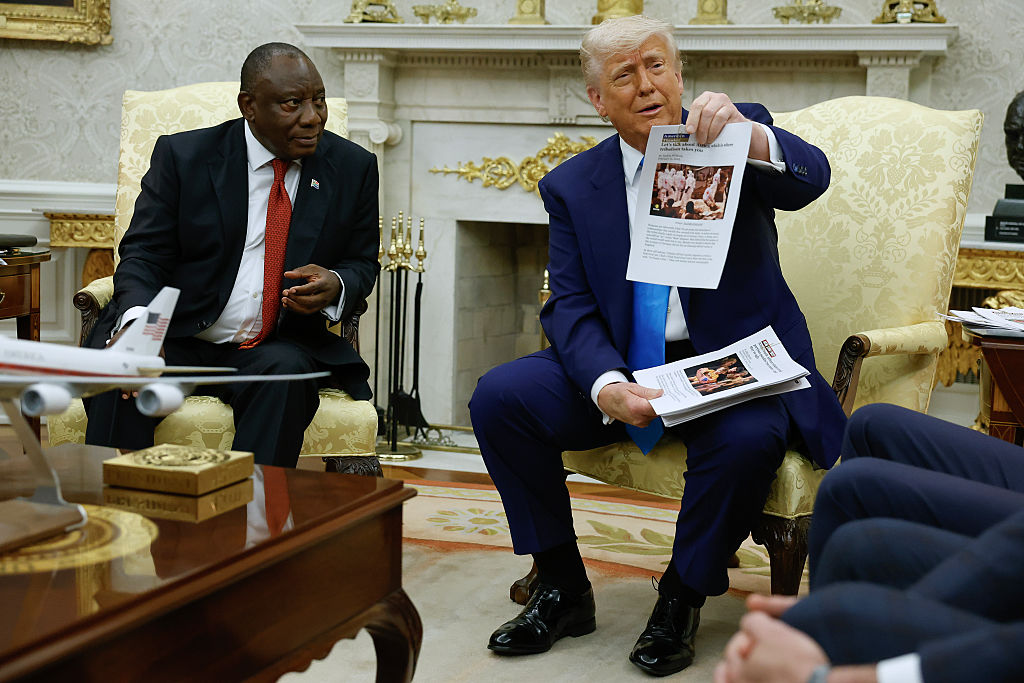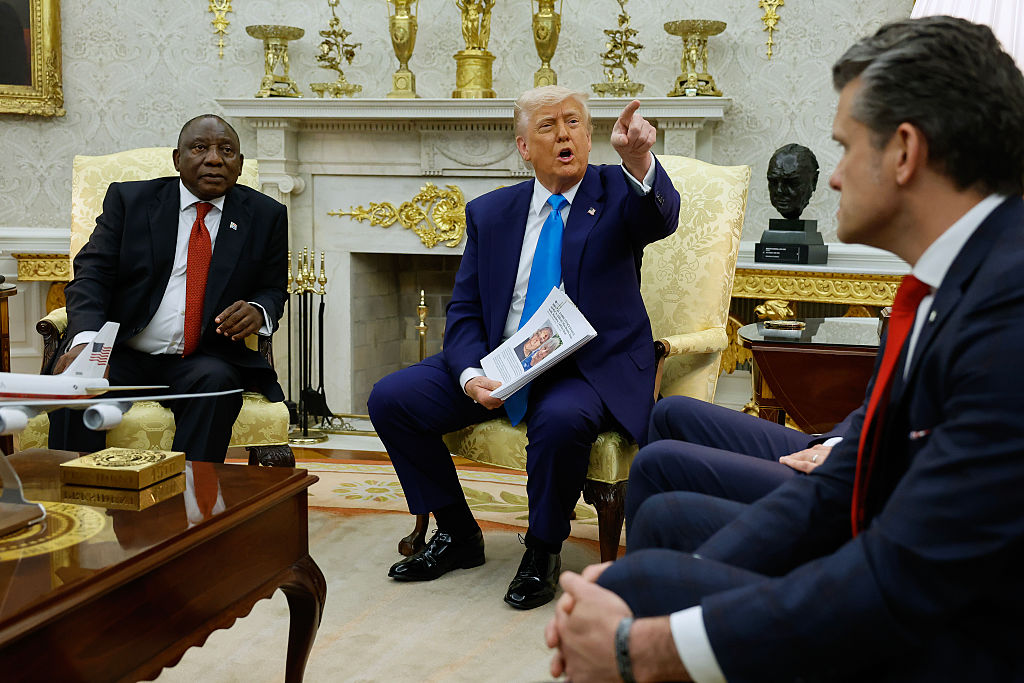Kenya
Life in the poorest continent is so hard you get a lot of knowing laughs with the joke: “What happens when you play a country and western song backwards? Your wife comes home, your children suddenly respect you, you get sober and your dog wakes from the dead.” In Kenya and other parts of Anglophone Africa, country and western music is a cultural obsession for both young and old. “We all relate to the problems they sing about,” says Jeff Koinange, host of the wildly popular Smokin’ Country radio show on Kenya’s Hot 96 FM. “Four hungry children and a crop in the field — this is everyday life for us Africans.”
Every couple of months Koinange and star singer Sir Elvis (real name Elvis Otieno) perform country music shows in small provincial towns, pulling in thousand-strong audiences who line-dance in Stetsons, cowboy boots, denim and big buckled belts. “If six-shooters were legal they’d be waving those around too,” Koinange laughs.
“It sounds surreal, but Kenya is a rural country, much like the southern states of America — and our experiences are a carbon copy of what they sing about,” Sir Elvis tells me in a Texas drawl. His biggest hit, “Loving Man,” is the story of a country boy seduced by the city lights who finally goes home to his family, God and paradise in the prairies, “’cos all he’s got is in the farm.”
It’s been like this since “Waiting for a Train” by Jimmie Rodgers hit Africa in the 1920s. In Kenyan villages, they sang in tribute to “Chemirocha” — a half man, half god whose trousers fell down when he yodlled. In South Africa, the folk singer Rian Malan tells me, “the Afrikaners were a struggling underclass like the characters in the songs and so those themes of overwhelming odds and praying to the Lord for salvation spoke to them deeply.”
Like the soundtrack for an African Grapes of Wrath, Malan says Afrikaans folk music meshed with country, in maudlin lyrics about train wrecks, orphans left behind, deathbed apologies to mama and the boredom of farm life interspersed with hangovers and Sunday morning coming. Or as the former Nairobi NPR radio correspondent Gwen Thompkins put it beautifully a few years back: “The allure of country music in Africa is its iconic characters — the gamblers and the highwaymen, the hand-wringing mothers and the cocksure sons, the Rubys, the Lucilles, the Jolenes, the grievous angels and the folks who just ain’t no good.”
Come the early 1960s, country had put down such deep roots in the continent that Jim Reeves briefly moved to South Africa, recorded an album in Afrikaans and starred in a local movie, Kimberley Jim. As a boy in Kenya, my cattle-ranching parents wore cowboy hats and suede jackets. They listened to “Adios Amigo” and around the campfire on safari Dad sang Bob Mallin’s “There’s Only Five Bullets in My Old Six-Shooter.” I guess white Kenyan farmers simply identified more with American cowboys than the Beatles and western counterculture.
Meanwhile in South Africa, Malan’s parents became devoted to “Warm and Tender Love” by Percy Sledge, who to their surprise turned out to be a black man. Raised in Banana Hill outside Nairobi, DJ Koinange would play the vinyls with his mother and siblings. “We took turns with the needle if a song needed repeating until we knew all the words.” Everybody trooped down to Shankar Dass & Sons, the record store in central Nairobi, to buy newly pressed 45s and 33s by Dolly Parton, Kenny Rogers and even homegrown singer Roger Whittaker.
Black Africans here are still fiercely proud of Whittaker, to whom they have given a Kikuyu nickname, “Waithaka.” Incredible, when you think that as a young man Whittaker served in the colonial forces that fought the Mau Mau before independence. But whether you’re white or black, if you’re from these parts you’ll weep every time you hear his greatest anthem:
My land is Kenya, so warm and wild and free
You’ll always stay with me here in my heart
My land is Kenya, right from your highlands to the sea
You’ll always stay with me here in my heart, here in my heart…
Soppy nostalgia, you might say. But like country music, life here is full not just of love and brawling in the mud and the blood and the beer — but true tragedy and conflict too. In 1989 a gang of robbers raided the Nairobi home of Whittaker’s parents, who were in their eighties. They tortured his mother and murdered his father.
The black country-music enthusiasts I speak to are genuinely puzzled when I ask how it is that country could be so popular among Africans, given that it first arrived on the phonographs of colonials and is still performed mainly by white singers for white folk, at least in America. “Country has no borders,” says Sir Elvis. Koinange reckons country really took off among black Kenyans when JFK organized a famous “airlift” of gifted young Kenyans to attend university in the US from 1959. Why, I ask, didn’t they come home to Africa playing the blues, or jazz, or later, Motown? Koinange explains that men like Barack Obama Sr. didn’t go to Chicago or Detroit, where they’d have heard jazz and blues — they wound up in Hawaii or the flyover states, attending small Christian colleges in provincial towns where the music scene wasn’t quite so cool or contemporary.
Radio is big here, and before the FM days all Kenyans were raised on the state broadcaster’s Saturday morning country programs. These days shows play black American country singers Kane Brown and Darius Rucker alongside Don Williams and John Denver — but Kenny Rogers’s “The Gambler” remains a top request. Wealthier fans at Koinange’s Smokin’ Country shows buy their Stetsons and buckles online from Arizona. Poorer Kenyans find denims or boots in local markets selling mitumba, or second-hand clothes, imported from the West. Mitumba clothes most of Africa today — Kenya alone imports 185,000 tons of it. Across Africa it’s up to four million tons.
Malan says country works in Africa because “it’s accessible and easy on the ear. The singer takes trouble to enunciate the words and there’s no such thing as a minor chord. Nothing abstruse, nothing Wagnerian and especially no sign of self-pity.” It’s also music for God-fearing conservatives, which evidently resonates with Africans who adore famous country singer Cleopatra Methula for her Dolly Parton voice in the land of eSwatini, to the shores of Lake Victoria where Sir Elvis strums his guitar, to the Nigerian hubbub of Port Harcourt, where Ogak Jay Oke croons “O my Jesus.” Koinange says: “I’m happy to see young people turning away from all that bongo and jump music. They’re sitting down on a hay bale in their Stetsons, having a beer or a whisky and listening to some good country music.”
This article was originally published in The Spectator’s UK magazine. Subscribe to the World edition here.



